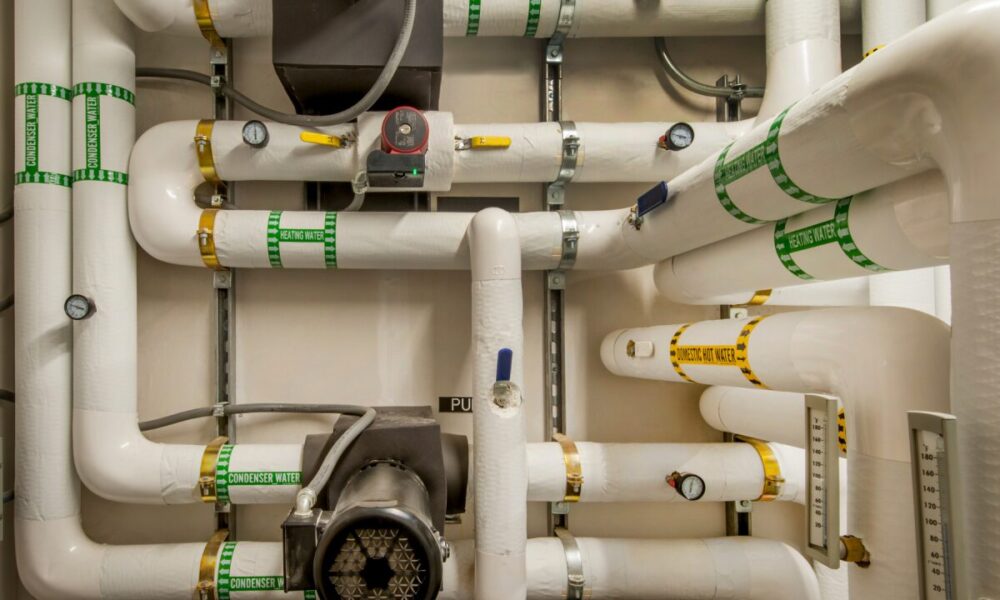Hard water, characterized by high mineral content, primarily calcium and magnesium, is a common issue in many regions. While not harmful to health, hard water can have significant negative effects on water distribution systems. Understanding these impacts is crucial for homeowners and businesses to maintain efficient plumbing and avoid costly repairs. In this article, we will analyze the impact of hard water on water distribution systems from a Plumbing technician’s perspective, exploring the challenges it poses and the solutions available.
1. Scale Buildup in Pipes and Fixtures
One of the major impacts is the formation of scale buildup inside pipes and on fixtures. The minerals in hard water can precipitate and adhere to the inner surfaces of pipes, faucets, and showerheads. Over time, this buildup narrows the diameter of pipes, restricting water flow and increasing pressure. These experts often find that severe scale buildup can lead to reduced water pressure and, in extreme cases, complete blockages that require extensive repair or replacement of the affected pipes.
2. Decreased Efficiency of Water Heaters
Water heaters are particularly vulnerable to the effects of hard water. The heat causes the minerals in hard water to precipitate out more rapidly, leading to significant scale buildup on heating elements and the interior surfaces of the tank. This scale acts as an insulating layer, reducing the heater’s efficiency and forcing it to work harder to heat water. This not only increases energy consumption and utility bills but also shortens the lifespan of the water heater. A plumber in Kerrville, TX, often recommends regular maintenance and descaling of water heaters in areas with hard water to maintain efficiency and prevent premature failure.
3. Shortened Lifespan of Plumbing Appliances
Hard water can also affect the longevity of various appliances, including dishwashers, washing machines, and ice makers. The mineral deposits can clog the internal components of these appliances, reducing their efficiency and leading to more frequent breakdowns. For instance, the small openings in dishwasher jets and washing machine valves can become blocked, resulting in poor cleaning performance and the need for more frequent repairs or replacements. They often advise homeowners to use water softeners or descaling agents to protect their appliances from the damaging effects of hard water.
4. Corrosion and Leak Risks
In addition to scale buildup, hard water can contribute to corrosion in certain types of pipes, particularly those made of galvanized steel. The minerals in hard water can create a galvanic reaction, accelerating the corrosion process and leading to pinhole leaks or even major pipe failures over time. Corrosion weakens the structural integrity of the water distribution system, increasing the likelihood of leaks and the need for costly repairs or replacements. They often use corrosion-resistant materials such as copper or PEX (cross-linked polyethylene) pipes in areas with hard water to mitigate these risks.
5. Solutions for Hard Water Problems
Addressing the challenges posed by hard water requires a multifaceted approach. Technicians typically recommend the installation of water softening systems, which replace calcium and magnesium ions with sodium or potassium ions, thereby reducing the hardness of the water. Water softeners can be installed at the point of entry to treat the entire water supply of a home or business, providing comprehensive protection for the piping system and appliances.
In conclusion, hard water presents several challenges to plumbing systems, from scale buildup and decreased efficiency of water heaters to shortened appliance lifespans and increased corrosion risks. These experts play a critical role in identifying and mitigating these issues through the installation of water softeners, regular maintenance, and the use of corrosion-resistant materials. By addressing the impact of hard water proactively, homeowners and businesses can protect their plumbing systems, extend the life of their appliances, and ensure efficient water usage, ultimately saving money and reducing the need for extensive repairs.
Are you looking for an ideal service provider for drain cleaning in Kerrville, TX? Look no further than the experts at Kerrville Plumbing Plus to extend the life of your system and appliances. Call (830) 896-0111 for any further assistance.
